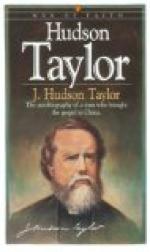Lake George to the Adirondacks
197-201
Ticonderoga
198
Bluff Point
199
Plattsburgh and the Saranacs
201
Source of the Hudson
202-210
The Tahawas Club
202
The Upper Ausable
203
Haystack and Camp Colden
204
The Deserted Village
205
Indian Pass
206
Tahawas
210
Geology, tides and condensed points
211-224
Geological Formation
211-215
The Hudson Tide
215
Condensed Points—New
York to Albany 216-224
[Illustration: Robert Fulton’s “Clermont” 1807]
1907—1909
CENTENNIAL GREETING
Hendrick Hudson and Robert Fulton are closely associated in the history of our river, and more particularly at this time, as the dates of their achievements unite the centennial of the first successful steamer in 1807, with the tri-centennial of the discovery of the river in 1609. In fact, these three centuries of navigation, with rapidly increasing development in later years, might be graphically condensed—
“Half Moon,” 1609; “Clermont,” 1807;
“Hendrick Hudson,” 1906.
Singularly enough the discovery of Hendrick Hudson, and the invention of Robert Fulton are also similar in having many adverse claimants who forget the difference between attempt and accomplishment.
Everyone knows that Verrazano entered the Narrows and harbor of our river in 1524, and sailed far enough to see the outline of the Palisades; that Gomez visited its mouth in 1525; Cabot still earlier in 1498; and various Norsemen, named and nameless, for several centuries before them, coasted along the shore and indenture of the “River of the Manhattoes,” but failed to acquire or transmit any knowledge of the river’s real course or character, and it was left for Hendrick Hudson to be its first voyager and thereby to have and to hold against all comers the glory of discovery.
* * *
A century vast of Hudson-fame
Which Irving’s fancy
seals;
Whose ripples murmur Morse’s name
And flash to Fulton’s
wheels.
Wallace Bruce.
* * *
So Robert Fulton had several predecessors in the idea of applying steam to navigation—John Fitch in 1785, William Symington in 1788 and many others who likewise coasted along the shore and indenture of a great idea, marked by continual failure and final abandonment. It was reserved for Fulton to complete and stamp upon his labor the seal of service and success, and to stand, therefore, its accepted inventor.




